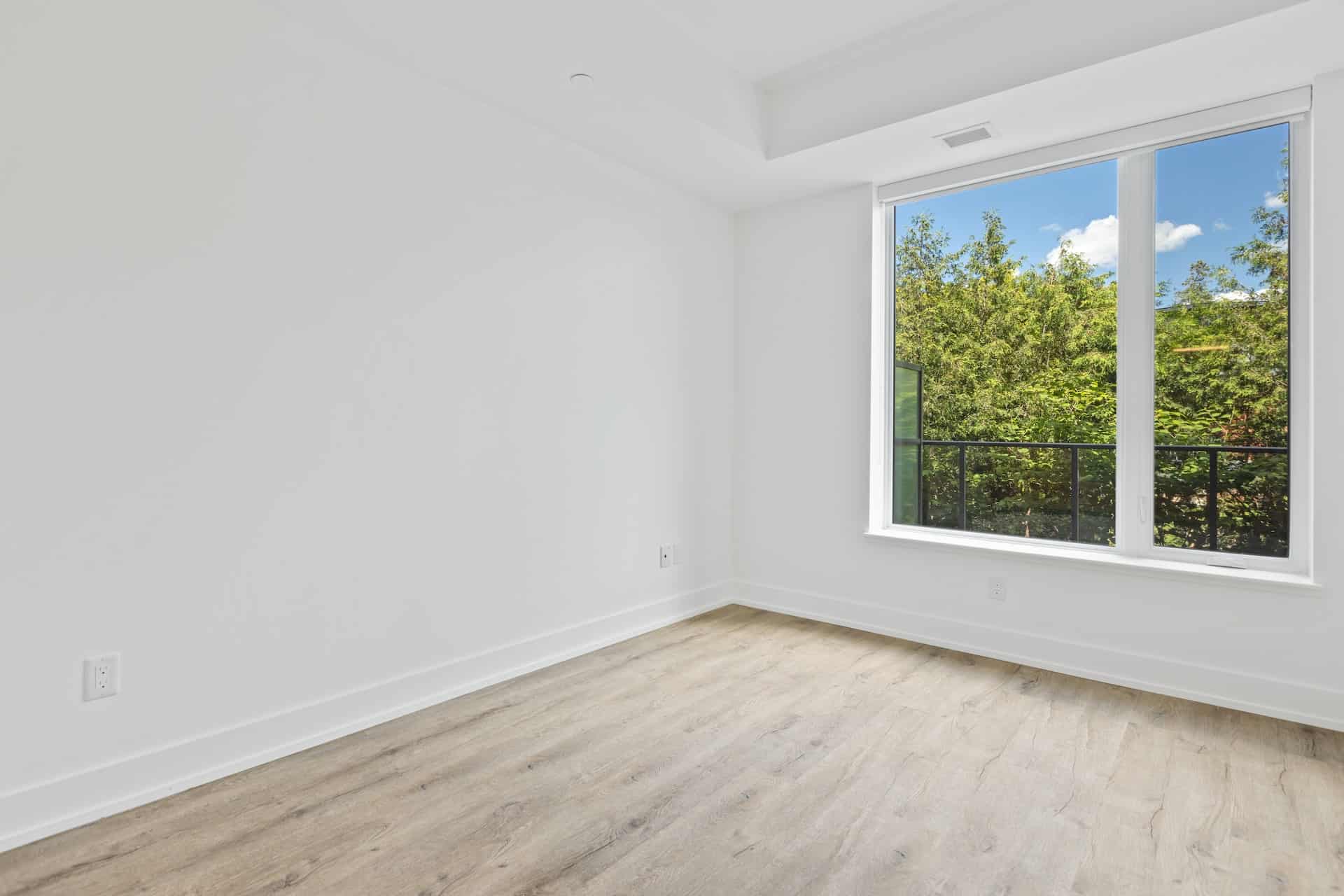Your pets are more than just animals. They’re your family. So, when you move, you need to find accommodations that accept and welcome them. Yet, renting with pets can be a nuisance.
The key to success is preparation.
Otherwise, you may end up in a really bad spot.
In fact, accommodation-related problems are the leading cause of animals ending up in shelters. If you want to avoid that unfortunate situation, then you need a plan.
And this guide will give you advice (and crucial tips) on how to rent with pets so you can take your whole family with you when you move.
How to Find an Apartment to Rent with Pets?
Finding an apartment to rent that accepts pets of all shapes and sizes can be a challenge. Simply follow these tips to maximize your chances of finding an ideal home with your pets:
- Allow extra time for planning: Searching for a pet-friendly apartment to rent can take a while. Make sure you start your search ahead of time before you have to move.
- Search for animal-friendly listings: When you start searching for an apartment, make sure you have pet-friendly filters enabled. While a lot of listings often don’t mention whether they accept pets or not, it’s best to start browsing those that definitely do.
- Make sure you talk to the landlord or agent about your pet: Whether you’re searching for apartments with the help of an agent or you’re attending a viewing with a landlord, make sure you inform them that you’re renting with a pet. This is an important detail that you need to know for them.
- Read apartment guides on pet rules: If you already have a place in mind, but you’re not sure what the rules on pets are, request an apartment guide for the building from the property management company. It may include rules and guidance for pet owners.
A Pet CV Can Make Renting with Pets Easier
Showing off your pet’s best qualities can help convince the landlord of their good character. Put together a pet CV for them that includes your pet’s:
- Photo: Get a picture of your pet.
- Basic information: Their age, breed, and size.
- Vet certificate: Ask your vet to confirm in a letter that your pet’s spayed/neutered, microchipped, and up-to-date on all their vaccinations.
- Reference from a past landlord: Having your previous landlord confirm how well-behaved your pets are can definitely help you find an apartment to rent.
- Favorite activities: Describe what they like to do. Are they energetic or more mellow pets who love to nap?
- Training certificate: If you’ve completed training with them, it’s good to include this in the pet résumé. Being potty trained is a major skill for your furry friend when you’re renting.
- Adoption story: You can also include their adoption story to say where your pets came from, and how they became part of your family.
Even if there’s a no-pets rule or a size restriction on pets, landlords sometimes make exceptions if your pets are well-trained and well-behaved. It’s worth asking a friendly landlord just in case. You never know what they’ll say…
Your Lease and Your Pets
Once you find a great apartment to rent where you can take your pet with you, the next step of renting with a pet is to make sure your legal side is covered.
Never sign a lease that says “no pets allowed.”
Even if the landlord says it’s ok, what matters is the lease you sign. If you read any no-pet language in the lease, make sure to send the document back for correction.
If you’re required to pay a pet deposit or a monthly pet rent, make sure you put this expense in writing. The last thing you want is to lose your deposit at the end of the tenancy because of a technicality.
Finally, keep the lease and any other agreements relating to your apartment well-stored in case you ever need to read them again.
Rules for Renting With Pets
Making sure your pets adheres to certain rules can make living in a rented accommodation easier. Even if the apartment is pet-friendly, you want your pets to be on their best behavior.
As a pet owner and a renter, it’s your responsibility to make sure that your pets don’t violate property rules. Damaging property and making other renters uncomfortable doesn’t just hold the risk of eviction. You can also ruin other pet-owners chances of finding a place to rent.
These guides by the Humane Society can help you train your cats and dogs and deal with the most common problems as a renting pet-owner:
- Prevent your cat from scratching up furniture
- Deal with your cat’s litter box problems
- Keep your cat happy indoors
- How to get your dog to stop barking
- Stop your dog’s inappropriate chewing
- Prevent your dog’s separation anxiety
Resolving Common Pet-Related Issues When You Rent
It’s possible that even if you rent at a pet-friendly place, some issues may arise during your tenancy. As much as we love our furry friends, they can be unpredictable at times. This advice will help you in case anything unexpected happens.
If your landlord says there are complaints relating to your pet:
In case the complaints have merit, make sure you train your pet properly.
However, if your pets have been behaving well to the best of your knowledge, explaining your side to your landlord may make a difference. Tell them that your pet has been behaving well, and the complaints misrepresent the situation.
In any case, offering a compromise or a solution to the problem can show the landlord that you’re a proactive pet owner. For example, if your dog is barking when you’re away, install a nanny cam to see how they behave when you’re not home.
If the landlord says that you need to pay a pet fee:
Your landlord can’t suddenly introduce a new fee. Please reread your lease and consult local tenants rights.
If the landlord says that they changed their mind about their pet policy:
There are various things you can do to make sure you can keep your pets at your current accommodation. Read on to find detailed advice in this scenario.
What to Do If Your Landlord Says Your Pet Must Leave
As long as you ensure that your pets don’t damage anything or cause nuisance to others, you shouldn’t have a conflict with your landlord.
However, sometimes landlords change their minds about allowing pets in their properties. As a result, they may end up asking their tenants to move.
If this happens to you, don’t worry. As long as you’ve been keeping up with your rental property’s rules, you have legal protections available that can help keep your rented apartment.
- Check your lease: If your landlord wants to evict your pet, the first thing you must do is check your lease. If there’s no wording on the lease in regards to a pet, it generally means that you’re allowed to have a pet.
- Make changes to your lease: If you want to make changes to your lease, both you and your landlord need to agree on the proposed changes, unless there’s already language in the document that allows change.
- Check local laws: Some communities and housing authorities ban certain types and breeds of animals as pets. These local laws outweigh your lease.
- Consider changing the status of your pet: Certain local laws ensure that pets classified as service animals or support animals can stay in accommodations, even if they’re a no-pet property.
- Don’t let your landlord take your pet: In any case, the landlord’s not legally allowed to go into your property and remove your pet.
- Seek legal help: If all else fails, and none of the laws and regulations are in your favor, don’t do anything rash. Seek legal advice to make sure that your family can stay intact.
Search for Pet-Friendly Apartments to Rent
Your pet is your family, and you should get a chance to rent an apartment with them. Still, finding a great apartment to rent with your pets can be quite difficult.
That’s why we make it easier for you here at Brixbid. Browse our latest listings of apartments with various pet-friendly filter options enabled.
We know that renting with a cat vs. a dog can be an entirely different experience, so we made it easier for you to search with the type of pet you have in mind.
Find your dream home for both you and your pets with Brixbid!



